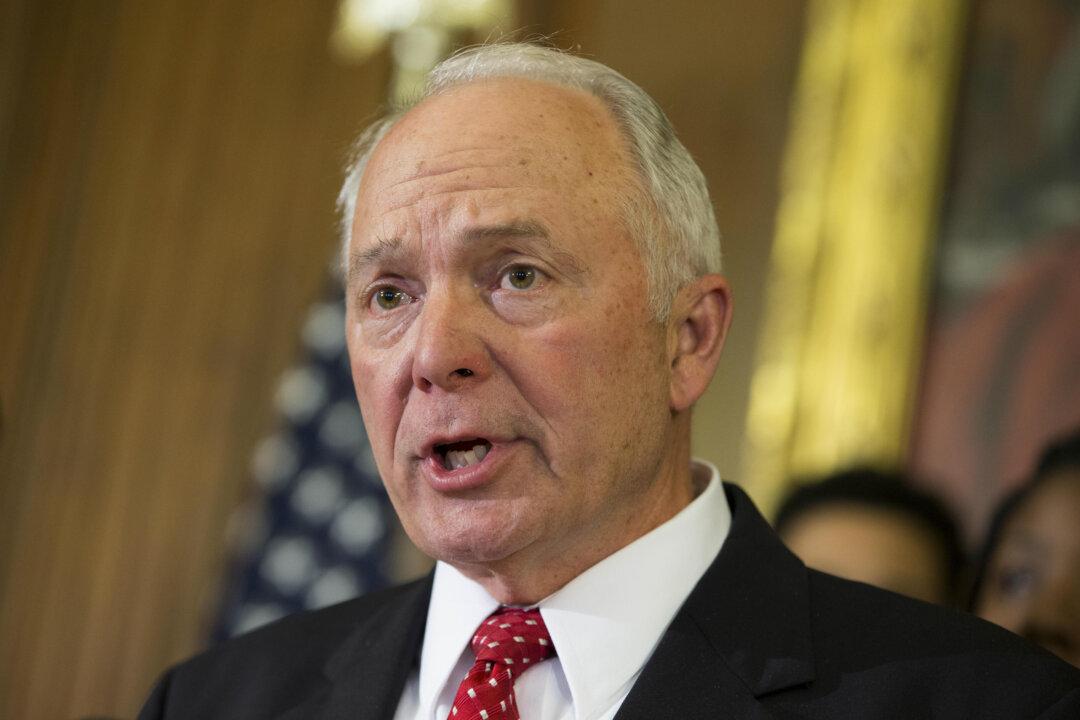WASHINGTON—After years of failed efforts, the House voted overwhelmingly Wednesday to sharply scale back the federal role in American education. But the bill would retain the testing requirement in the 2002 No Child Left Behind law that many parents, teachers and school districts abhor.
The legislation, approved 359-64, would return to the states the decision-making power over how to use students’ test performance in assessing teachers and schools. The measure also would end federal efforts to encourage academic standards such as Common Core.
The 1,000-plus page measure was a compromise reached by House and Senate negotiators. The Senate is to vote on it early next week and President Barack Obama is expected to sign it.
Rep. John Kline (R-Minn.), who led the House-Senate conference committee on the legislation, said Washington has been micromanaging the nation’s classrooms for too long.
“Today, we turn the page on the failed status quo and turn over to our nation’s parents and our state and local leaders the authority, flexibility and certainty they need to deliver children an excellent education,” he said.
White House Press Secretary Josh Earnest said in a statement after the vote that the bill would “reduce over-testing and one-size-fits-all federal mandates,” though some conservative lawmakers argued that it would not go far enough, and they voted against it.
No Child law has been due for renewal since 2007, but previous attempts to reauthorize it have gotten caught in a broader debate over the federal role in public education.
The legislation would maintain a key feature of the Bush-era law: annual reading and math testing of children in grades 3 through 8 and once in high school. And it would require schools to make those test scores public noting students’ races and whether they are disabled to help identify achievements gaps and struggling schools.
Principals, teachers, parents and others have complained for years about what they consider a maze of redundant and unnecessary tests and too much “teaching to the test” by educators. The legislation would encourage states to set limits on the total amount of time kids spend taking tests.
In a significant shift, the bill would return to the states the decision-making power over how to use students’ performance on the tests to assess teachers and schools. The measure also would end federal efforts to encourage academic standards such as Common Core guidelines and the linking of test scores to teacher evaluations.
Some more conservative voices balked, saying the bill didn’t go far enough.
Neal McCluskey of the libertarian Cato Institute cautioned that the federal education secretary could still wield too much influence when it comes to monitoring accountability plans for schools.
“It does not appear that the secretary can state specifically what a plan must have, but the Ed Sec could potentially veto plans that he deems inadequate until—wink, wink—he gets what he wants,” McCluskey blogged.
But teachers’ unions hailed the vote on the Every Student Succeeds Act (ESSA) as a historic step.
“For the first time since No Child Left Behind was enacted nearly 14 years ago, ESSA empowers educators as trusted professionals to make school and classroom decisions while keeping the focus on students most in need,” said National Education Association President Lily Eskelsen García.
Under the bill, the Education Department would see a much-diminished role and no longer be able to sanction schools that fail to improve. Instead, states would be responsible for working with schools and local districts to develop achievement goals and accountability plans.
Still, states would be required to intervene in the nation’s lowest-performing 5 percent of schools, in high school “dropout factories” and in schools with persistent achievement gaps—something Democrats insisted must be part of any education overhaul.
On Common Core, reviled by many conservatives, the compromise bill says the Education Department may not mandate or give states incentives to adopt or maintain any particular set of academic standards. The Common Core college and career-ready curriculum guidelines were created by the states, but have become a lightning rod for those who think Washington has too much influence in public schools. Since 2012, the administration has offered grants through its Race to the Top program for states that adopted strong academic standards for its students.
The bill also ends the waivers the Obama administration has given to more than 40 states, exemptions granted around the more onerous parts of No Child when it became clear that requirements such as having all students proficient in reading and math by 2014 would not be met.
One thing absent from the bill is portability—allowing money to follow low-income students to public schools of their choice, an idea embraced by Republicans. Those dollars would remain at struggling schools. But the bill would allow for a small pilot program that would let some federal money move with students in some school districts.





